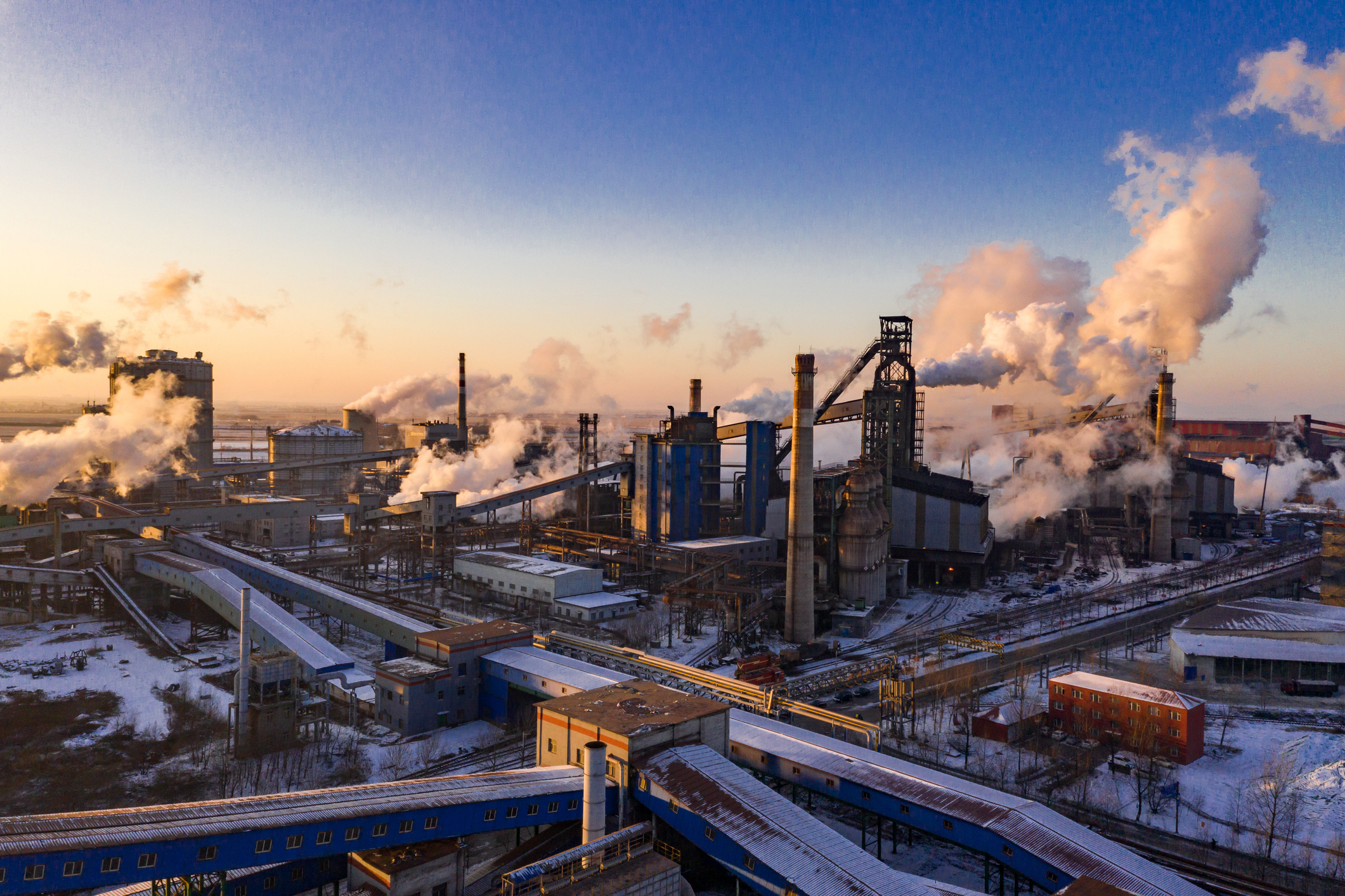As 2024 draws to a close, we celebrate a year of significant milestones for industrial decarbonization and the Industrial Innovation Initiative’s (I3) role in shaping the implementation of existing supportive laws and crafting next-generation policies. Encouraged by billions of dollars in tax credits and federal funding, the government at all levels took critical steps to support the transformation of decarbonizing American manufacturing. Implementation of the federal Bipartisan Infrastructure Law (BIL) and the Inflation Reduction Act (IRA) provided unprecedented support to help American industry reduce its emissions and compete internationally.
Some notable highlights include the US Department of Energy’s (DOE’s) Office of Clean Energy Demonstrations selecting 33 projects for award negotiations through the Industrial Demonstrations Program. The six billion dollars in awards represents the largest single investment in industrial decarbonization in American history. I3 member LanzaTech participates in one of the selected projects, a sustainable ethylene project on the Gulf Coast. Additionally, Congress passed the ADVANCE Act to fast-track a new generation of nuclear facilities and the US Environmental Protection Agency awarded $396 million to reduce industrial emissions in Pennsylvania. It was truly a momentous year for American industry, I3, and its members.
“I3 consistently demonstrates a proactive approach to addressing member needs, ensuring timely and responsive support that fosters a strong sense of community and collaboration. Syzygy Plasmonics is grateful for the opportunity to have a forum for discussion on critical policies to support innovation in the US.” –Suzanne Foti, director of Government Relations at Syzygy Plasmonics, an I3 member
I3 Highlights from 2024
Federal Policy Blueprint
In late January, I3 released its 2024 Federal Policy Blueprint. The release marked the culmination of months of meetings in which members collaboratively identified the policies required to achieve midcentury climate goals, all conducted in the nonpartisan, consensus-based manner for which the Initiative is known.
The blueprint provides a coherent vision for reducing industrial emissions in the short and long term and identifies four key areas for future policy development and implementation: supportive infrastructure, industrial energy demand, data and standards, and market transformation. Nearly a year after its release, the blueprint continues to shape the industrial decarbonization agenda.
Hill Day
In late February, I3 staff and members gathered on Capitol Hill for a media briefing and to meet with more than a dozen House and Senate offices from both parties. In these meetings, they promoted the recently released blueprint, advocated for the importance of continued federal investment in industrial decarbonization, raised the profile of I3, and helped build relationships with key Congressional offices. For example, the Initiative was pleased to welcome a staff member of Senator Shelley Moore Capito’s Office from the Environment and Public Works (EPW) Committee to its in-person plenary meeting in October after meeting with her office during the Hill Day. Senator Capito will chair the EPW committee in the 119th Congress.
Implementation of BIL and IRA
Initiative staff and members dedicated significant effort to tracking, summarizing, and shaping the implementation of key components of BIL and IRA. In addition to monthly plenary meetings and regular communications, other notable actions included I3 staff convening members to submit consensus-based responses to several requests for comments and information from federal agencies. Staff also proactively facilitated meetings between Initiative members, staff, and key contacts in Congress and DOE.
45V
In early 2024, following DOE’s release of the initial draft of the 45V Clean Hydrogen tax credit program, the Initiative convened to review the regulations and draft a consensus-based response. In the spring, the Initiative reconvened to draft another consensus-based response to DOE related to the Provisional Emissions Rates portions of the 45V regulations.
Building Relationships with Key Agency Stakeholders
I3 engaged with IEDO on several fronts to shape the office’s industrial decarbonization strategy. In May, I3 staff and several members attended a workshop hosted by the Industrial Efficiency and Decarbonization Office (IEDO) to solicit feedback on the office’s ongoing role in shaping DOE’s industrial decarbonization strategy. Initiative staff then convened members to submit a formal, consensus-based response to a corresponding request for information.
In September, I3 staff and several members met with IEDO’s director and deputy director. During the meeting, IEDO requested additional feedback from the Initiative on how best IEDO and DOE can reduce barriers to the adoption of new technologies, accelerate deployment, and effectively collaborate with different sectors across DOE.
State Industrial Decarbonization Toolkit
In October, I3 staff released a web-based State Industrial Toolkit designed primarily for state officials and industry leaders. It is a living resource that will be expanded over time. The toolkit provides the context and information needed to confidently communicate industry’s role in the energy transition, identify actionable measures states can take to reduce emissions, and direct stakeholders to key technical partners and peer projects.
Pittsburgh Plenary
In October, I3 hosted an in-person plenary meeting in Pittsburgh, Pennsylvania, with roughly 30 attendees from nearly 20 different organizations spanning industry, labor, and NGOs. It was a full day of networking and panel discussions focused on industrial innovation. The plenary fell during a multi-day gathering that included several industry-related events organized in collaboration with the Team Pennsylvania Foundation, the States Deployment Initiative, and several other partner organizations.
Working with States
In 2024, I3 staff also developed relationships with environmental officials in many states through work with the States Deployment Initiative, a coalition of nonprofits. Through the States Deployment Initiative, I3 staff have held monthly virtual meetings with states to provide information and updates on industrial decarbonization and gathered with them at several in-person convenings. We look forward to continued collaboration with states as they begin to implement measures identified in their Priority Climate Action Plans.
I3 values a stable climate, a safe and healthy environment, thriving livelihoods for American workers, and a strong US economy. Achieving these goals requires a thriving industrial sector.
I3 is increasingly recognized as a valuable non-partisan, consensus-based voice in the industrial space. Our members are designing and implementing projects to reduce emissions and are engaged in formulating policies that will shape American industry for years to come. In 2024, I3 welcomed new members across sectors, issued a well-regarded policy blueprint, held meetings across Congress, developed relationships with federal and state agency staff, and responded to multiple formal requests for comment.
“To make American industry cleaner and more competitive, we need pragmatic policy that accelerates emerging solutions and sets up American manufacturers for success. Through I3, Antora Energy is proud to work with innovation-minded stakeholders working to realize this future.” –Noah Long, director of State & Regulatory Affairs at Antora Energy, an I3 member
I3 is successful thanks to active engagement from our members. We thank members who were active contributors in 2024 and look forward to reconnecting with others in 2025. Defending existing investments and advocating for additional policies needed to reduce industrial emissions will require close coordination across organizations and partnerships. We look forward to working with you to build momentum for industrial decarbonization. We are inspired by the widespread enthusiasm for supporting American industrial innovation, emissions reductions, economic vitality, and cleaner communities.
Stay up to date with our work in 2025 by signing up for our newsletter.

